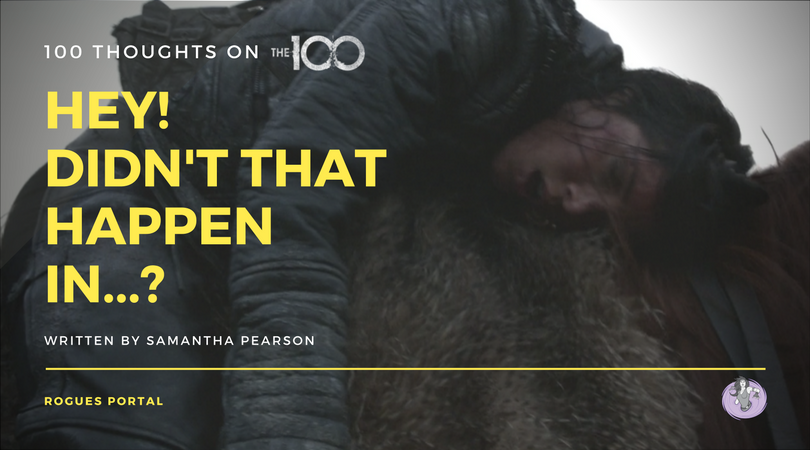
[This post contains spoilers for “The 100” through the most recent episode, 4×04.]
Last week on The 100, Octavia Blake, daughter of Arathorn, heir to Isildur, seemingly fell to her death after a bloody battle with the Ice Nation. Her brother was informed in an achingly tragic scene and then, impossibly, her horse Helios found her alive and took her home — just in time for what looks like yet another battle with the Ice Nation, according to the trailer for episode 4×05.
Long live Octavia Blake, daughter of Arathorn, heir to Isildur!
Wait. What?
It’s no secret that popular television series often take their cues from shows of the past, or from broader cultural influencers. Nods to other pop culture gems are common and it’s even easier to spot the differences with fans on the Internet live-tweeting, blogging, and otherwise documenting their viewing experience. There are new theories cropping up in real time, all the time, about where plot arcs and scene directions took their cues.
But some references are a lot easier to spot than others.
Since the first season of The 100, there have been several very obvious references to popular works of literature, television, and cinema. In last week’s episode, the near shot-for-shot nod to Aragorn’s fall in The Lord of the Rings: The Two Towers was hard to miss, but it’s not the first time the show has drawn obvious inspiration from other works.
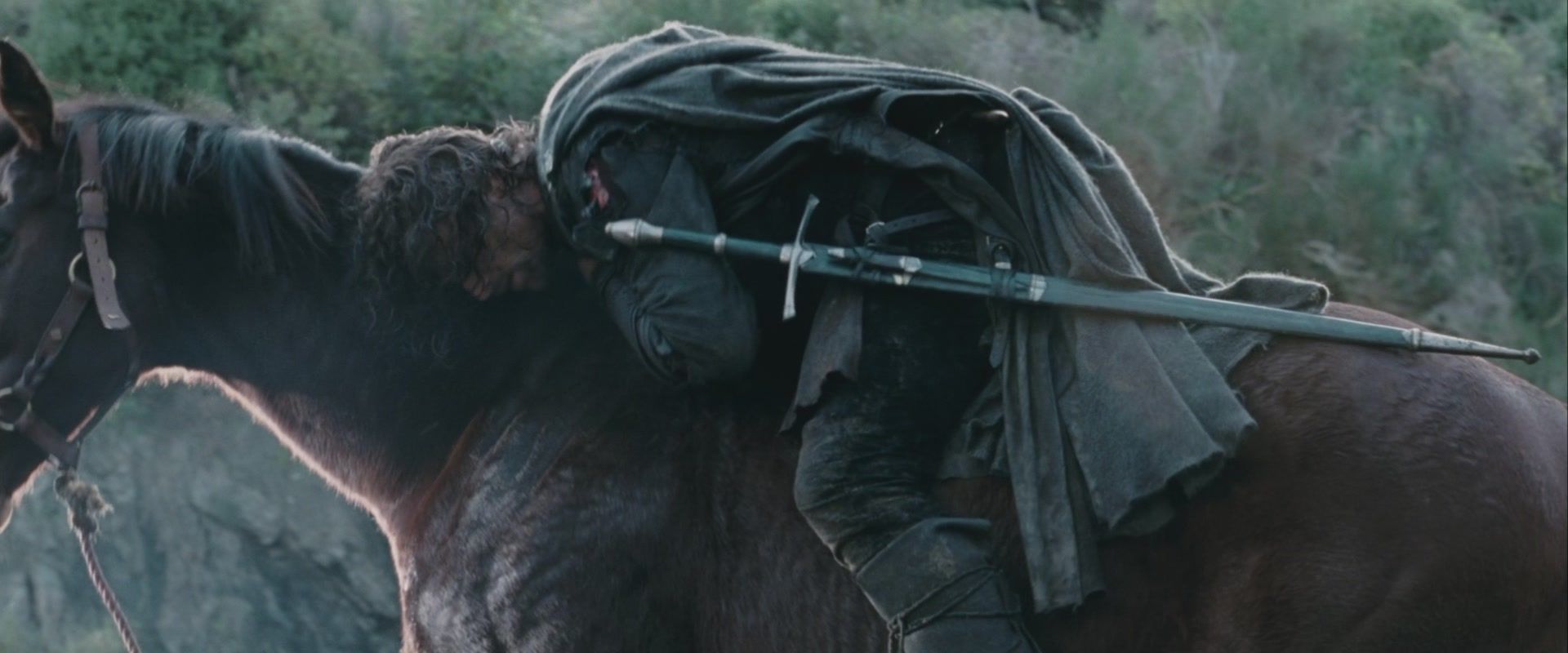
Here are just a few of the most obvious examples:
Lord of the Flies by William Goulding
This classic novel is on the reading list for high school English classes across the country. When The 100 premiered in 2013, several bloggers and critics drew comparisons between the post-apocalyptic sci-fi series and the classic novel.
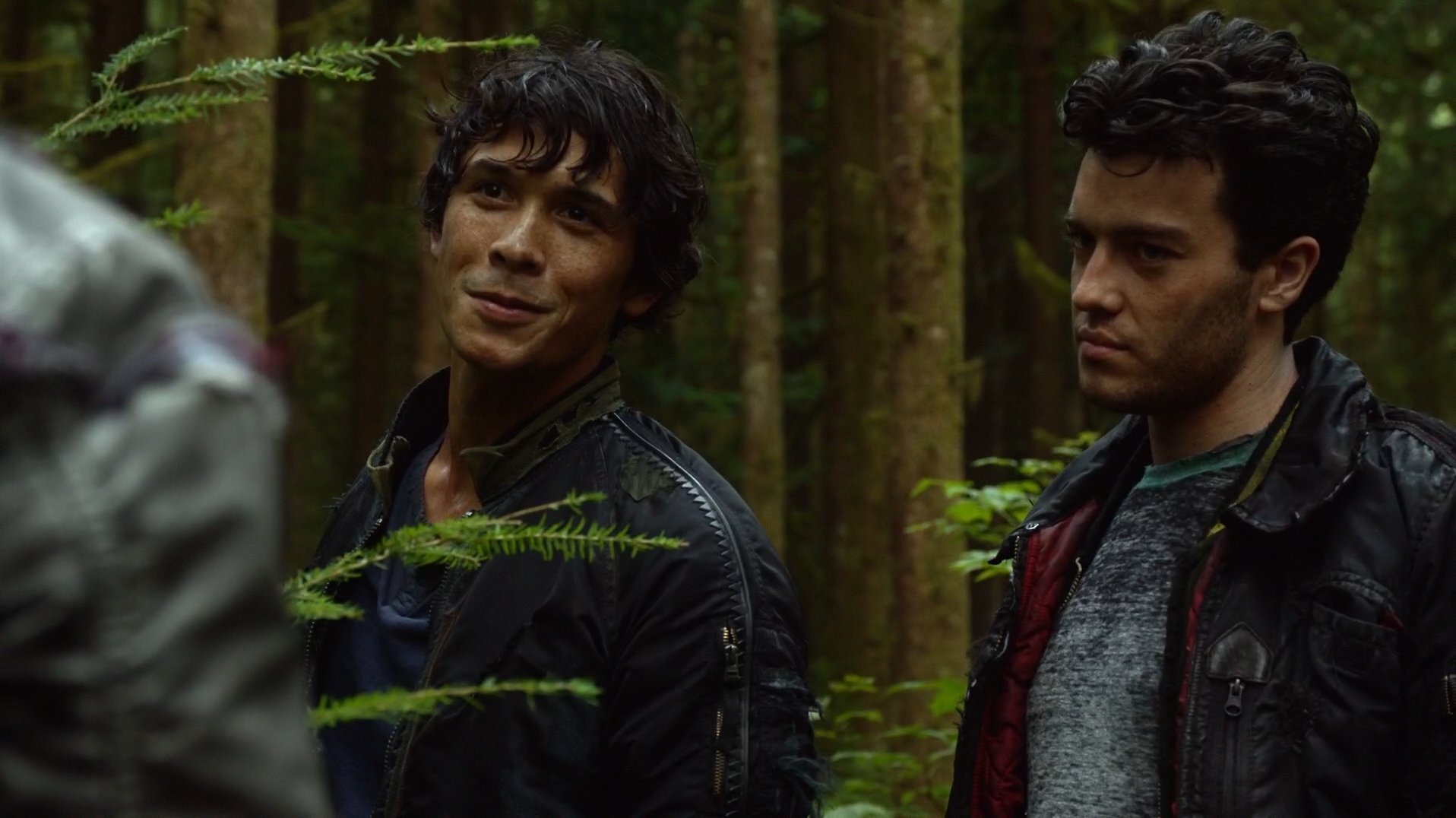
Although the show gives off a lot of Lord of the Flies vibes in general (especially the first season), one of the most obvious comparisons is in episode 1×03, “Earth Kills”. Some of the hundred go hunting for a boar in the woods, which recalls the infamous sow-hunting scene from the novel that my high school English teacher fixated on for nearly a week (and rightfully so — the metaphor is disturbing and necessary to discussion of the book).
However, while the boys in the novel experience serious bloodlust in their hunt, the scene in The 100 does something a little different — that bloodlust and desperation to kill is tempered, at least for Bellamy, by his nearly hitting one of the younger delinquents with an axe when he attempts to throw it at the boar. She then becomes part of their hunting party, and later her attempts to “kill her demons” lead her to one of the earliest, nastiest bits of violence in the series.
(Then there’s a hunt for her, which I suppose could be read as just an extended, metaphorical version of the sow hunt.)
Macbeth by William Shakespeare
There are numerous Shakespeare references peppered throughout The 100, but two of the most obvious come from the same play and involve the same character. In episode 1×11, “We Are Grounders Pt. 1”, Finn desperately tries to wash blood from his hands to no avail. The scene recalls Lady Macbeth’s cries of “Out, damned spot! out, I say!”
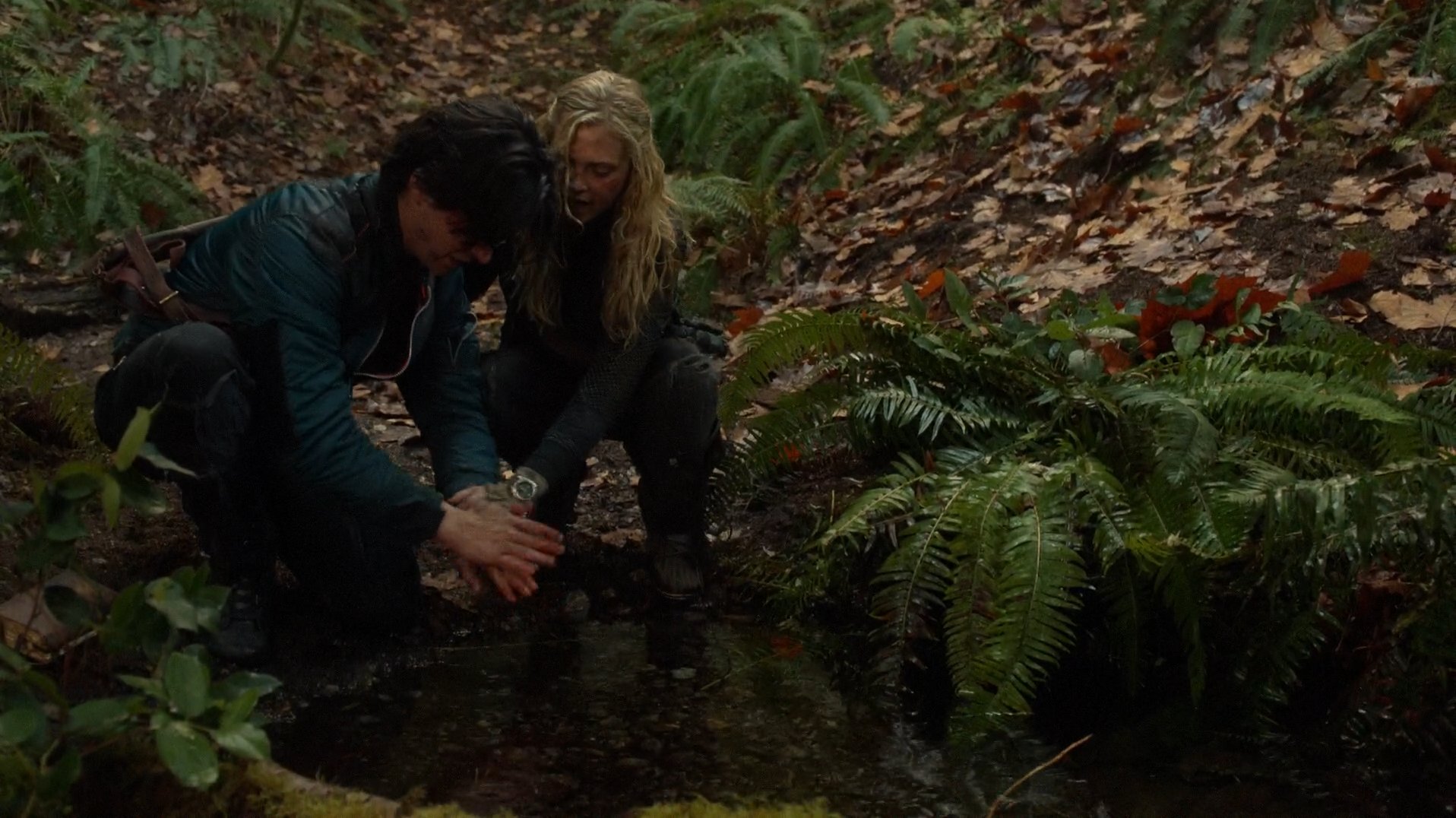
Much like Lady Macbeth, Finn is reluctant to commit to any kind of violence himself, and then the act of it breaks him. He goes on a very quick spiral following this scene that eventually leads to him mass-killing Grounders in a village where he believes Clarke is being kept, only to find out she’s been safe and looking for him the whole time.
Then in episode 2×09, “Remember Me”, Finn’s ghost haunts Clarke after she mercy kills him before Lexa and the rest of the Grounders can have their revenge. The haunting recalls Banquo’s ghost haunting Macbeth after he killed the man for personal gain (though admittedly, the comparison is weird, since Clarke didn’t actually kill Finn for any reason other than not subjecting him to a long, painful death).

Like Banquo, Finn isn’t the first person Clarke (in this case, Macbeth) has killed, but he is the closest to her emotionally. Though we don’t see Finn’s ghost for more than one episode (thank goodness), his death clearly weighs heavily on Clarke. Using his ghost to convey that is straight outta That Scottish Play.
Buffy the Vampire Slayer by Joss Whedon
Perhaps the most recognizable (and hotly debated) reference in The 100 is Lexa’s death sequence in episode 3×07, “Thirteen”. This death sparked outrage in the LGBT community and beyond for killing another lesbian character, for feeding the Bury Your Gays trope, and for giving viewers a wlw relationship with all the promise of a decent ending that once again ended in tragedy.
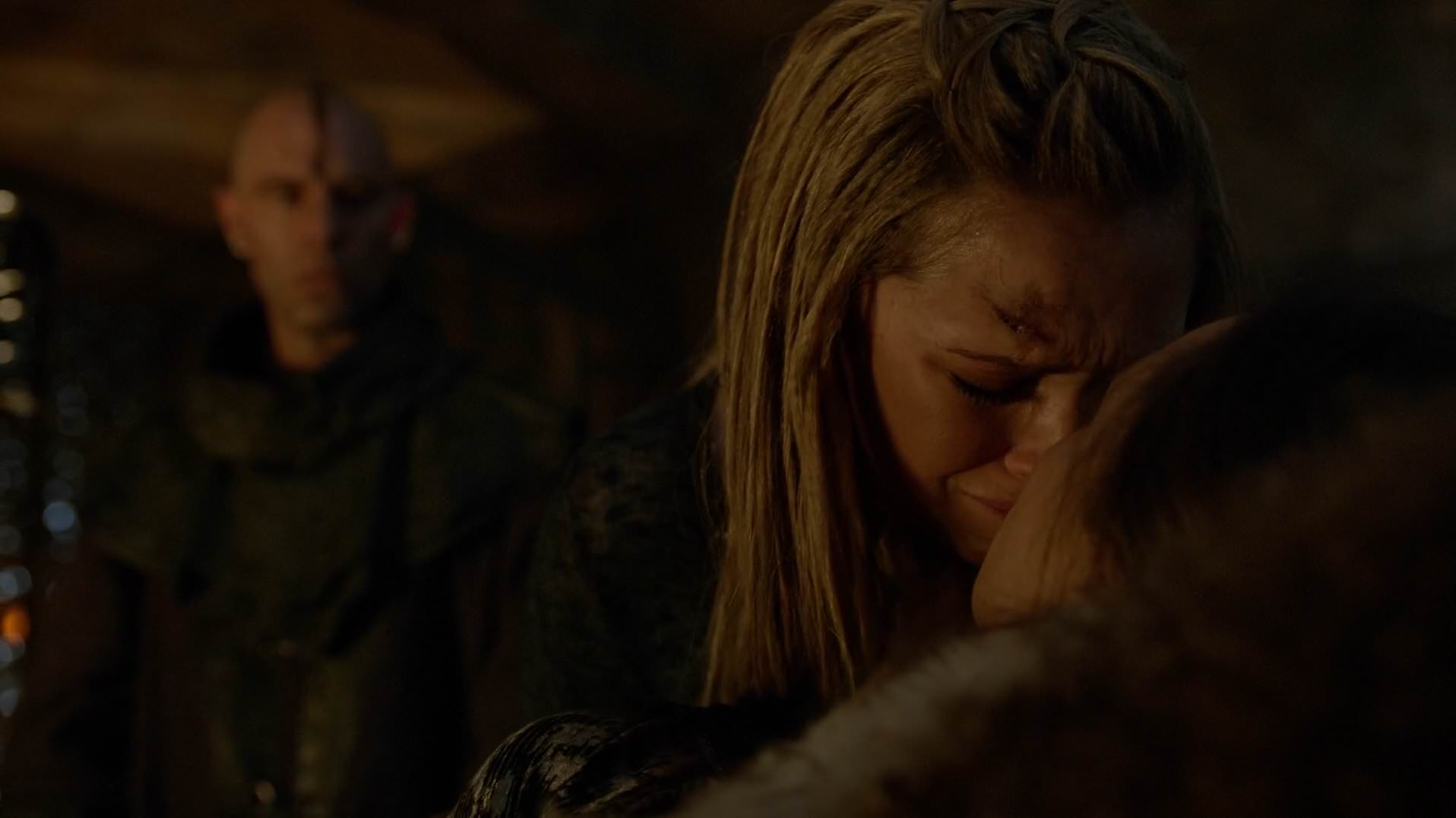
Perhaps one of the most upsetting things about Lexa’s death is that it is a near shot-for-shot reenactment of Tara’s death in season six of Buffy the Vampire Slayer, which aired in 2002. There’s a romantic sex scene between Lexa and Clarke just before Lexa is shot by an errant bullet that isn’t meant for her, followed by a lot of tears and a lot of blood on Clarke’s shirt.
Sound familiar? That’s because the sequence is much like the romantic sex scene between Willow and Tara just before Tara is shot by an errant bullet that isn’t meant for her, followed by a lot of tears and a lot of blood on Willow’s shirt.

As the show progresses, it would seem the writers and directors are getting bolder and more obvious in their allusion choices. Where the first two seasons were more subtle in their references, Lexa’s death in season three and Octavia’s near-death in season four were nearly perfect replicas of their (more than obvious) inspirations.
So, what’s next? This show is peppered with pop culture references that are oddly specific given that the show takes place 97 years post-nuclear apocalypse (Clarke references Oppenheimer directly at one point, and Octavia is blatantly named after Caesar Augustus’ sister). Somehow, those don’t feel out of place even when they probably should — after all, they must have had books on the Ark, right?
But seeing such blatant nods to recent popular works of visual media is always a little jarring. The media we consume is often very reference-based. The 100 is hardly the first show to directly reference The Lord of the Rings or Buffy the Vampire Slayer, but in a world that’s so saturated with real-time reactions, I’m not certain that being so blatant is a smart move. As a fan of all three works, it feels a little lazy on behalf of the writers at The 100 to reimagine these iconic sequences with hardly any changes to them at all.
It will be interesting to see what else the show comes up with in future episodes — perhaps next will be a classic horror or romance scene, plopped into post-nuclear apocalypse Earth.

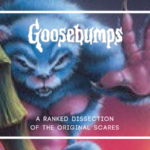


4 thoughts on “100 Thoughts on The 100: Hey! Didn’t That Happen In…?”